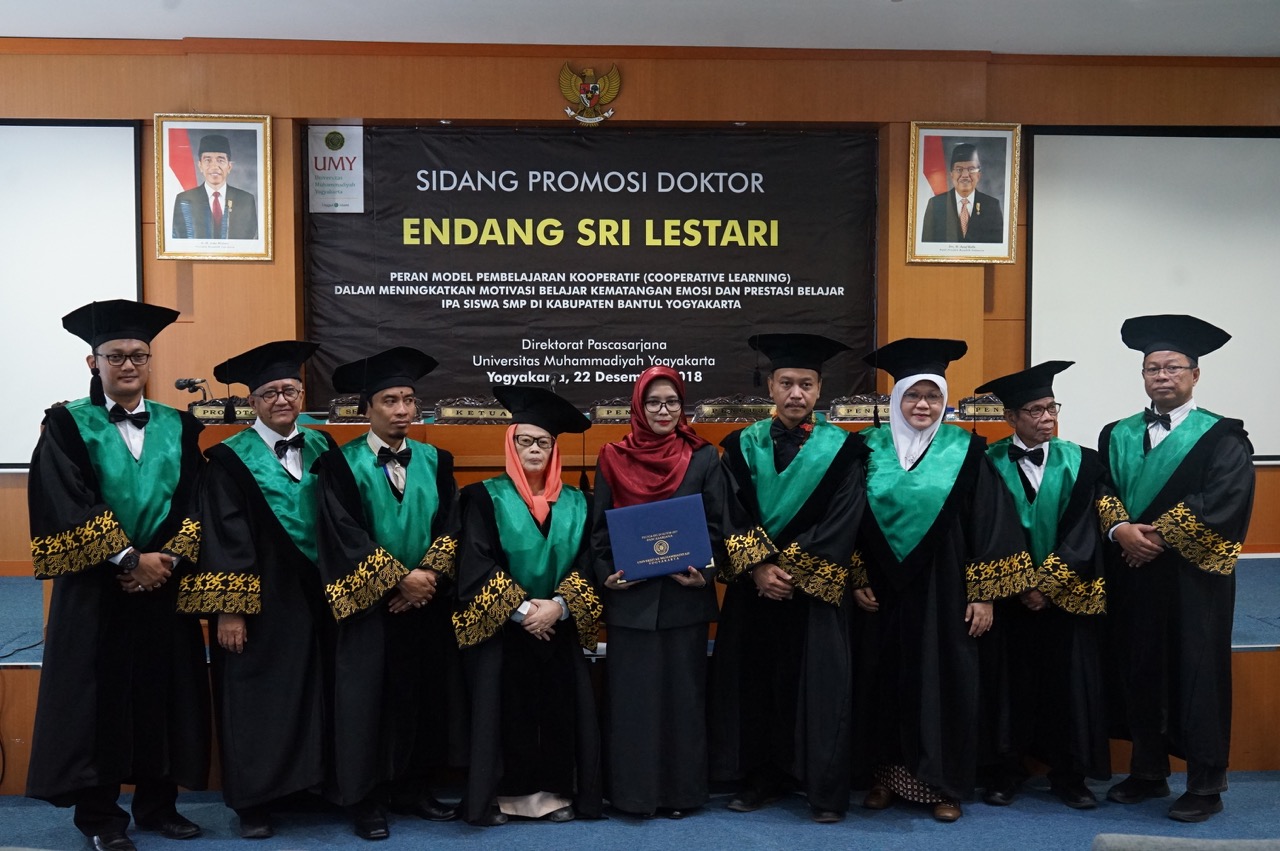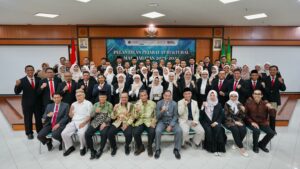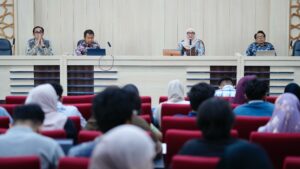Massive information technology development has brought positive impacts on many aspects such as creativity and intelligence enhancement of children. A lot of internet-based media provide learning materials for the children. The media offer something fascinating and can be accessed via a phone. However, the technology development also has negative effects on children’s psychological and social development.
The circumstance drew an attention of a doctoral student of Universitas Muhammadiyah Endang Sri Lestari, S.Pd., M.Si. so that she wrote a dissertation entitled “Roles of Cooperative Learning in Enhancing Learning Motivation, Emotional Maturity, and Natural Science Achievements of Students in Regency of Bantul, Yogyakarta.”
Endang, who achieved Satya Lencana Pendidikan (an award), explained that easy information accessibility gives negative effects on children’s learning motivation and social development. “My research findings reveal that low learning motivation occurs since children tend to get lazy to do activities and prefer playing their phone and surfing on social media. In a social aspect, the technology development affects negatively on children’s social life because their friendship growing through social media drive them less care about their social life,” declared Endang.
She also mentioned three main issues emerging because of the technology development, namely lack of learning motivation, emotional maturity and learning achievements. “Indeed, a learning method mostly applied nowadays is competitive learning that children compete one another. Thus, learning motivation of children with few achievements gets lower and lower and the method cannot solve the issue,” she maintained.
Endang explained that cooperative learning is an answer of the problem. “Cooperative learning focuses on student-oriented learning. The approach enables students with low motivation to work together with highly motivate students so that their low motivation can enhance,” she illustrated.
“Interaction during the cooperative allows students to physically interact so that it helps a process of children’s emotional maturity. It also enables children to diminish their individualism and appreciate ideas of teamwork and helping. Her research findings demonstrate that the cooperative learning will yield high learning motivation and decent emotional maturity, and significant improvement of students’ achievements,” added Engdang.
She also told that her research findings would become a module to be implemented at school. “I believe that cooperative learning is an appropriate learning method due to the information technology development and children’s individualism. In fact, a module which I design can be learning materials for teachers to confront the issue,” conveyed Endang.







